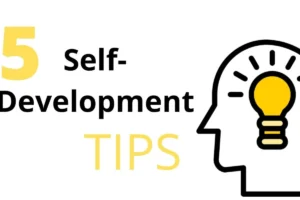Hey curious minds!
Ever wondered what makes people tick, why they make certain decisions, or how to influence behavior positively?
Welcome to the intriguing world of human psychology tricks – simple yet powerful insights into the workings of the mind.
Let’s unravel the mystery together and discover 10 psychology tricks that can empower you in both personal and professional realms.
The Art of Persuasion
Reciprocity: The Give and Take
Ever noticed how offering a small favor or gift often prompts people to reciprocate?
It’s the psychological principle of reciprocity – the urge to give back when we receive.
So, next time you need assistance, consider making a thoughtful gesture first.
Scarcity: Less is More
Scarcity plays on our fear of missing out.
Whether it’s a limited-time offer or a rare opportunity, the perceived value increases when something is scarce.
Harness this trick by highlighting exclusivity to make your requests more compelling.
Nudging Behavior
The Power of Defaults
Defaults influence decision-making more than we realize.
Take advantage of this by presenting favorable options as the default choice.
People tend to stick with what’s preselected, making decision-making a breeze.
Anchoring: Setting the Stage
Anchoring is the art of introducing a reference point that influences subsequent judgments.
When negotiating, start with a higher number to anchor expectations.
The final offer may end up closer to your desired outcome.
Building Connections
Mirroring: Imitation Game
People unconsciously like those who mimic their gestures, expressions, or tone.
Mirroring creates a sense of familiarity and connection.
So, subtly mirror the body language of others to build rapport effortlessly.
The Benjamin Franklin Effect
Turns out, doing favors for someone can make them like you more.
Known as the Benjamin Franklin Effect, it suggests that people justify their actions by convincing themselves they must like you if they’ve done something for you.
Enhancing Communication
Door-in-the-Face Technique
Ever heard of asking for a lot to get a little?
The door-in-the-face technique involves making a large request that you expect to be denied, followed by a more reasonable request.
The contrast makes the second request seem more acceptable.
Zeigarnik Effect: Unfinished Business
The Zeigarnik Effect suggests that people remember uncompleted or interrupted tasks better than completed ones.
Use this to your advantage by leaving tasks slightly unfinished, creating a desire to complete them.
Motivating Action
Goal Gradient Effect
The closer we get to a goal, the more motivated we become to achieve it.
Break larger tasks into smaller milestones to trigger the goal gradient effect, keeping motivation high throughout the journey.
Cognitive Dissonance Resolution
When faced with conflicting beliefs or attitudes, humans seek harmony.
Leverage cognitive dissonance by encouraging actions that align with desired beliefs, leading to a natural resolution of conflicting thoughts.
Conclusion:
Unleashing the Power of Psychology
As we wrap up our exploration of these 10 psychology tricks, remember that understanding human psychology is like having a toolkit for effective communication and influence.
When used ethically and responsibly, these tricks can enhance personal relationships, negotiations, and decision-making.
FAQs: Decoding the Mind
Q1: Can these psychology tricks be used for manipulation?
A: While these tricks are powerful tools, ethical considerations are crucial. Using them to manipulate or deceive is not recommended. The goal is to understand and positively influence, not exploit.
Q2: How quickly can I expect to see results with these tricks?
A: Results vary based on context, individuals, and the specific trick used. Some may yield immediate effects, while others might take time. Consistency and awareness are key.
Q3: Are these tricks universally effective across cultures?
A: Cultural nuances can influence the effectiveness of these tricks. It’s essential to consider cultural differences and adapt strategies accordingly for more inclusive and respectful communication.
Q4: Can these tricks be applied in professional settings?
A: Absolutely! Many of these tricks are widely used in professional settings, including negotiations, sales, and leadership. Understanding human psychology can enhance interpersonal dynamics in the workplace.
Q5: Can I use these tricks on myself for self-improvement?
A: Certainly! Understanding these psychological principles can help you set and achieve personal goals, improve communication with others, and foster a positive mindset. Remember, knowledge is power – use it wisely.



